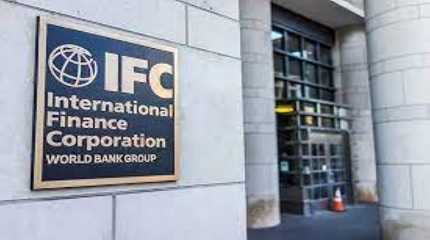
JERUSALEM (AP) — The World Bank and Jordan are using a “flawed” algorithm to calculate aid for the kingdom’s citizens, excluding some people who are impoverished, hungry or otherwise struggling, a leading rights group said Tuesday.
Human Rights Watch reported that the automated program ranks the income and socioeconomic status of Jordanian families, a practice known as “poverty targeting.” The report said that approach leaves out some needy people — such as the owners of modest businesses — increasing poverty in a nation of 10 million citizens.
“Many people in Jordan are not getting financial support because their hardships don’t fit an algorithm’s rigid model of what poverty should look like,” said Amos Toh, senior technology and human rights researcher at Human Rights Watch.
One Jordanian, identifying himself only as Abu Laith, or “the father of Laith,” said he is among those wrongly cut off from benefits.
The 48-year-old father of three sons and three daughters said he supports his widowed mother and two of his brothers and a sister, in addition to trying to help the family of his deceased sister. He did not finish high school and worked in construction for an income that’s not enough to support the whole family in Ramtha, about 90 kilometers (about 55 miles) north of Amman.
Abu Laith said he registered on the Takaful platform in 2019 and started receiving 280 dinars (about $400) every three months beginning in October 2019. Then, a team from the government visited the home and in April 2022, the support was cut off. Laith objected, he said in an interview with The Associated Press, but to no avail.
“The general statistics team told us that our living situation is good, and that, ‘There are poorer families than you,’” Abu Laith said. He asked that his name be withheld because he is appealing the decision.
“We are workers,” he said, noting that he now makes about 200 dinars (about $280) a month, does not own a car and can hardly meet his family’s basic needs.
“The financial assistance was very important to us and helped us,” he added.
The Hashemite kingdom, which celebrated a glittering royal wedding this month, is also facing rising poverty. The World Bank said the poverty rate in Jordan — the percentage of those without enough money to meet basic needs such as food, clothing and shelter — rose from 14% in 2010 to nearly 16% in 2019.
The vast majority of Jordanians, even those who live above the poverty line, typically scrape by on less than $1,000 a month. Jordan is also home to some 1.5 million refugees, mostly from neighboring Syria.
Jordan’s government and the World Bank did not immediately respond to requests for comment. The New York-based watchdog said it was told that the Jordanian government and the World Bank are revising the formula for release in July.
The report cites letters and discussions about some features of the algorithm.
Jordan’s National Aid Fund, the social agency administering the program known as Takaful — “solidarity” in Arabic — reportedly assesses whether aid applicants meet the program’s basic criteria, such as whether families are headed by a Jordanian citizen and living under the poverty line.
The fund then applies the algorithm, which uses 57 socioeconomic indicators to estimate families’ income and wealth and ranks them, HRW said. Families that own cars less than five years old or businesses worth at least 3,000 dinars — about $4,200 — are automatically disqualified, it said.
The process, HRW said, “pits one household against another for support (and) fuels social tension and widespread perceptions of unfairness.”
The report quoted an owner of a small tailoring shop in Amman’s Al-Balad neighborhood as suspecting that his business was a possible reason he did not receive support — even though losses that piled up during the COVID-19 pandemic forced him to take out thousands of Jordanian dinars in loans to cover his electricity bills, rent and other basic needs.
Families that consume more water and electricity can also be less likely to qualify for support, under an indicator that analyzes dwelling characteristics, the report said.




